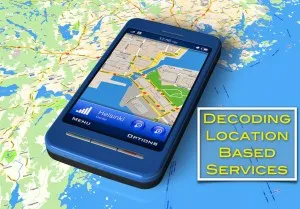[YS Learn] Digital maps: Emerging market challenges for Places search and local discovery

This is part of an educational series on the LBS domain. Through this series, we will explore features of Maps and location based services, potential areas and opportunities and companies that operate in the domain.
A key use case for digital maps and location-based services is the ability to search for places, either near the user or in a given geography. To facilitate this, most systems have a dedicated places database that holds place details, separate from the map database.
Place details – In addition to place name and location info, LBS and digital maps solutions offer other attributes like contact details, type of service, etc. that were traditionally in the Yellow Pages category. In addition, many offer information on opening/closing hours, whether parking is available, credit cards are accepted, etc.
As multiple systems have grown independently, there is no commonly agreed ontology for place details. Place searches today often struggle with the following issues:
- Fractured data sets
Firms that started with navigation as their core use case have details of places and geo-coordinates. Not all of them have details of places that are required today.
Yellow pages companies have a strong database of firms and phone numbers, but not all of these are geo-coded. They often have addresses, but plotting places automatically on a map based only on the address (a process called reverse geocoding) is difficult and not fully reliable, due to the lack of common addressing standards. When a user searches for places nearby, it is difficult to reconcile place data without having geocodes for these places.
- Unstructured market places
In many emerging markets, the concept of a place or shop varies tremendously. There is no standard size for shops, or easy means to identify unique shops. There are no standard signboards as well.
This makes automatic recognition of place data difficult. It also complicates the process of serving search results based on a query. A local search query of ‘grocer’ may return the neighborhood grocer shop in a corner as well as a modern retail store. It is difficult to judge whether the user asked for the local store or a modern retail store.
- Changing landscapes
This is a problem most severe in emerging markets. Many shops open and shut down or change details like phone numbers fairly frequently in the course of a couple of years. The only way to figure this out is a re-survey, which is expensive.

Challenges in India
Many emerging markets, including India, offer other concerns related to addressing and place details.
- Transliteration of phonetic names
Indian names are phonetic, and it is often difficult to spell the name accurately in English.
While we are able to read name structures and map them easily, this can be difficult problem while searching for an address or place. For instance, the official spelling may be Marathahalli, but users could search for Marthahalli as well and expect the same results. It is often difficult to reconcile all the different possible combinations for spellings and names
- Multiple names for places or roads
Many roads, places and areas in India have multiple names, an official and a commonly used one. Users expect to search using any of these, but this places additional burden on information collection.
- Unstructured addressing systems

Houses in Chennai have an ‘old number’ and a ‘new number’.
Many places in Bangalore have a cross/main information attached, but the cross and main are usually not perpendicular.
Most areas in Mumbai are divided into East and West sections. Though places may be radially near each other, the route to get from East to West may be extremely circuitous.
Point is: there is no common addressing scheme in India. Most maps and search systems were built for structured markets in the developed world, and there are many changes required in systems before they can be used in India.
The author can be reached at [email protected] or at @shrinathv.


![[YS Learn] Digital maps: Emerging market challenges for Places search and local discovery](https://images.yourstory.com/cs/wordpress/2013/04/Facebook_Places_Categories.jpg?mode=crop&crop=faces&ar=16%3A9&format=auto&w=1920&q=75)
